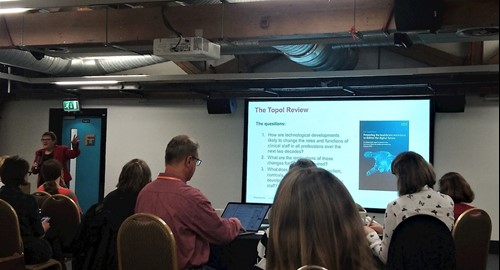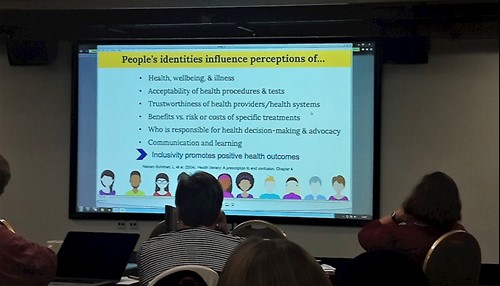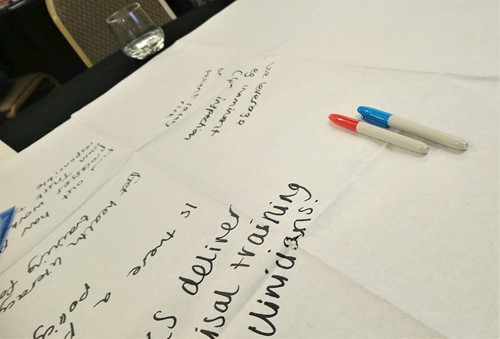I started working as a Knowledge Service Assistant at Greater Manchester Mental Health (GMMH) in July. This is my first full-time library role and my first role in the NHS. As someone at the start of their career, I was absolutely thrilled when LIHNN offered me a bursary to attend the 10th International Clinical Librarian Conference (ICLC), which took place at Manchester’s Museum of Science and Industry on the 3rd-4th October. It gave me the opportunity to learn more about the sector and to hear about innovations which are happening in the UK and beyond.
The highlight of the conference for me was Sue Lacey-Bryant’s keynote presentation on the Topol Review and the impact which digital technology will have on healthcare and on our profession. She spoke about how the skills of librarians will be needed as healthcare embraces more digital technology and that as professionals, we need to position ourselves to take advantage of that and show our impact. As Sue very eloquently said,
“Evidence does not speak for itself. It requires people like you to mediate it.”

The conference gave me lots of ideas to improve how I deliver services day-to-day. Despite flight issues meaning she couldn’t be there in person, Jane Morgan-Daniel from the University of Florida shared a pre-recorded presentation about how she has built relationships and promoted good health information within a diverse community. This resonated with me because the Knowledge Service serves people working in health and social care across Manchester. Jane emphasized the importance of understanding your community to be able to help them and spoke about how the way you introduce yourself has an impact on the relationships you build. She has 30-second elevator pitches for when she meets people to promote the services she can offer them. I give inductions to the service, as well as telling people about the Knowledge Service at Trust events. This talk encouraged me to develop my own elevator pitches to have on hand so that I can promote the service effectively when meeting new people.

One of the ways in which our service at GMMH is spreading good health information is The Better Information Programme, a newly-launched training course which teaches health, social care and community organisations how to appraise and find reliable health information. At a workshop on day one, there was a Knowledge Café on the question ‘How can we influence patient information to be evidence-based?’. It was a great way to share ideas and find out what is happening in other Trusts. It seems as though patient information is currently being produced in a lot of different departments and on the tables I was a part of, we discussed how library and knowledge services can embed themselves in these processes to make sure patient information is evidence-based and up-to-date.

On day two, there were several presentations which covered current awareness topics. I found these particularly useful because I produce a weekly public health bulletin and am developing another on digital technology in mental health services. Carolyn Smith’s lightning talk offered three great bullet points for bulletins:
1. Don’t make unnecessary work
2. Use IT
3. Phone a friend
‘Phone a friend’ recommended encouraging key users to promote the bulletin and asking for feedback, which is advice that I will put into practice going forward.
There was a lot to digest over the two-day conference, so it has been great to reflect over the past month on everything that was said. I can definitely say that my first conference experience was a good one and many thanks to LIHNN for the bursary which allowed me to attend.
Naomi Hall
Knowledge Service Assistant
Greater Manchester Mental Health NHS Foundation Trust

